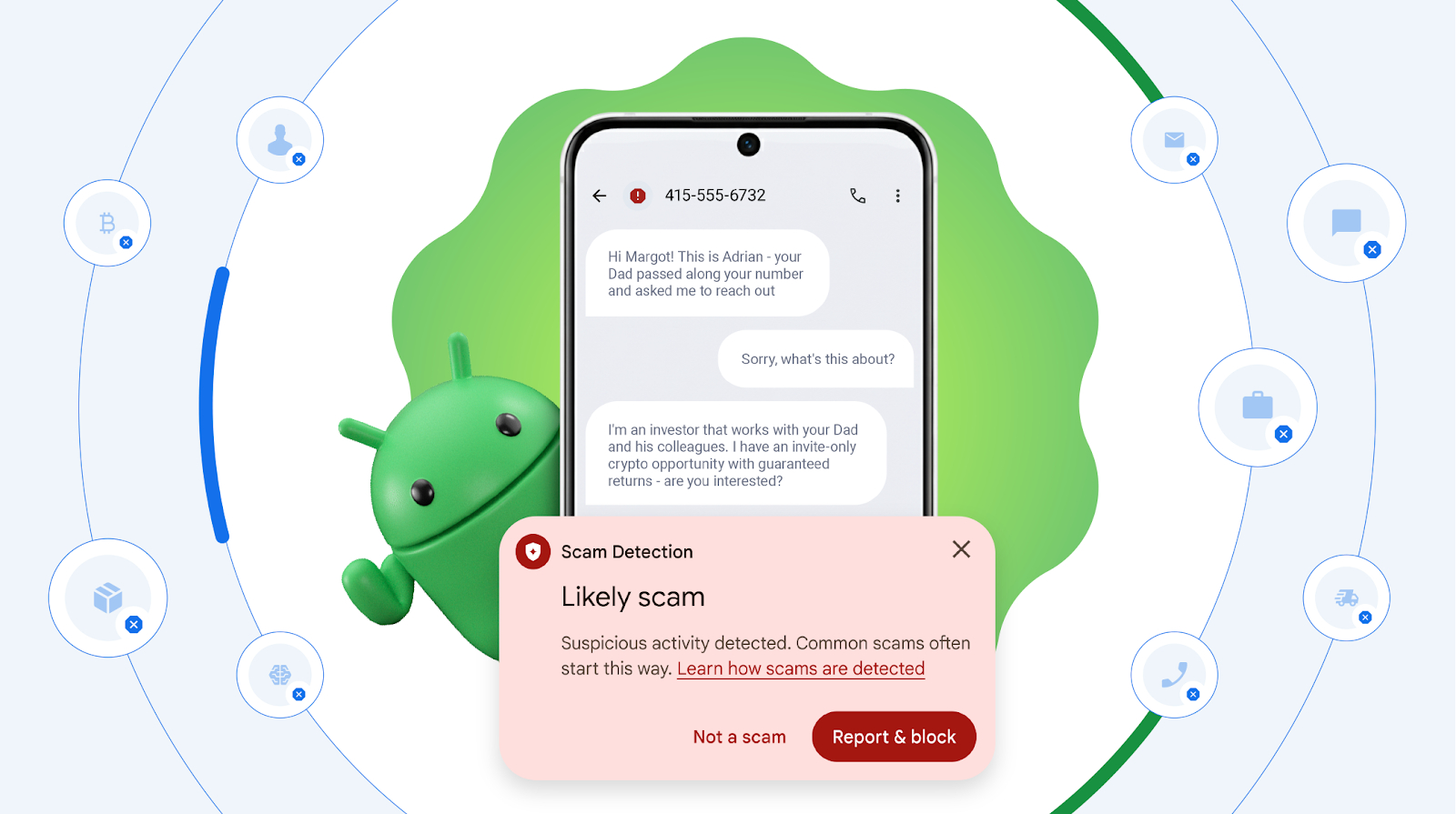“

Vlad Cherevko I have been interested in various types of electronics and technologies since the early 2000s. I like to play computer games and understand the operation of various gadgets. I regularly follow the news of the technology world and write materials about it myself.
According to a survey by Google and YouGov in the US, India and Brazil, Android users were 58% more likely to report that they had not received a single fraudulent SMS in a week. Pixel owners had an even bigger advantage — they were 96% more likely to be protected from such messages than iPhone users. In contrast, iPhone owners were 65% more likely to receive three or more fraudulent SMS messages per week.
 Findings from YouGov’s survey of user experiences with fraud on Android and iOS
Findings from YouGov’s survey of user experiences with fraud on Android and iOSIn addition to the number of messages, the level of trust also differs: Android users were 20% more likely to rate the protection of their devices as “very effective” or “extremely effective”. At the same time, iPhone owners were 1.5 times more likely than Pixel users to report a lack of effective protection.
Google assures that independent research supports these findings. Analytical company Counterpoint Research found that Android has 9 levels of AI protection, while the iPhone only has 2. Leviathan Security Group named the Pixel 10 Pro as the most powerful device by default in combating fraud, followed by the latest Android flagships and the iPhone 17 Pro.
 Counterpoint Research’s comparison of AI-based security on Android and iOS
Counterpoint Research’s comparison of AI-based security on Android and iOSExperts note that the high level of Android protection is based on the active interception of threats in its applications. For example, “Google Messages” detects suspicious SMS even during a dialogue, not only at the first contact, “Phone” automatically checks unknown calls and warns if the interlocutor requests confidential data, Gmail blocks 99.9% of phishing emails, and “Play Protection” scans billions of applications every day.
According to the Global Anti-Scam Alliance, losses from mobile fraud worldwide exceeded $400 billion in the last year, as criminals increasingly use convincing schemes of deception based on artificial intelligence.
Google emphasizes that it uses its best artificial intelligence capabilities in Android to create proactive, multi-layered defenses that can predict and block fraudulent activity before it reaches a user interaction.
”, — write: www.pravda.com.ua

Vlad Cherevko I have been interested in various types of electronics and technologies since the early 2000s. I like to play computer games and understand the operation of various gadgets. I regularly follow the news of the technology world and write materials about it myself.
According to a survey by Google and YouGov in the US, India and Brazil, Android users were 58% more likely to report that they had not received a single fraudulent SMS in a week. Pixel owners had an even bigger advantage — they were 96% more likely to be protected from such messages than iPhone users. In contrast, iPhone owners were 65% more likely to receive three or more fraudulent SMS messages per week.
 Findings from YouGov’s survey of user experiences with fraud on Android and iOS
Findings from YouGov’s survey of user experiences with fraud on Android and iOSIn addition to the number of messages, the level of trust also differs: Android users were 20% more likely to rate the protection of their devices as “very effective” or “extremely effective”. At the same time, iPhone owners were 1.5 times more likely than Pixel users to report a lack of effective protection.
Google assures that independent research supports these findings. Analytical company Counterpoint Research found that Android has 9 levels of AI protection, while the iPhone only has 2. Leviathan Security Group noted the Pixel 10 Pro as the most powerful device by default in combating fraud, followed by the latest Android flagships and the iPhone 17 Pro.
 Counterpoint Research’s comparison of AI-based security on Android and iOS
Counterpoint Research’s comparison of AI-based security on Android and iOSExperts note that the high level of Android protection is based on the active interception of threats in its applications. For example, “Google Messages” detects suspicious SMS even during a dialogue, not only at the first contact, “Phone” automatically checks unknown calls and warns if the interlocutor requests confidential data, Gmail blocks 99.9% of phishing emails, and “Play Protection” scans billions of applications every day.
According to the Global Anti-Scam Alliance, losses from mobile fraud worldwide exceeded $400 billion in the last year, as criminals increasingly use convincing schemes of deception based on artificial intelligence.
Google emphasizes that it uses its best artificial intelligence capabilities in Android to create proactive, multi-layered defenses that can predict and block fraudulent activity before it reaches a user interaction.
